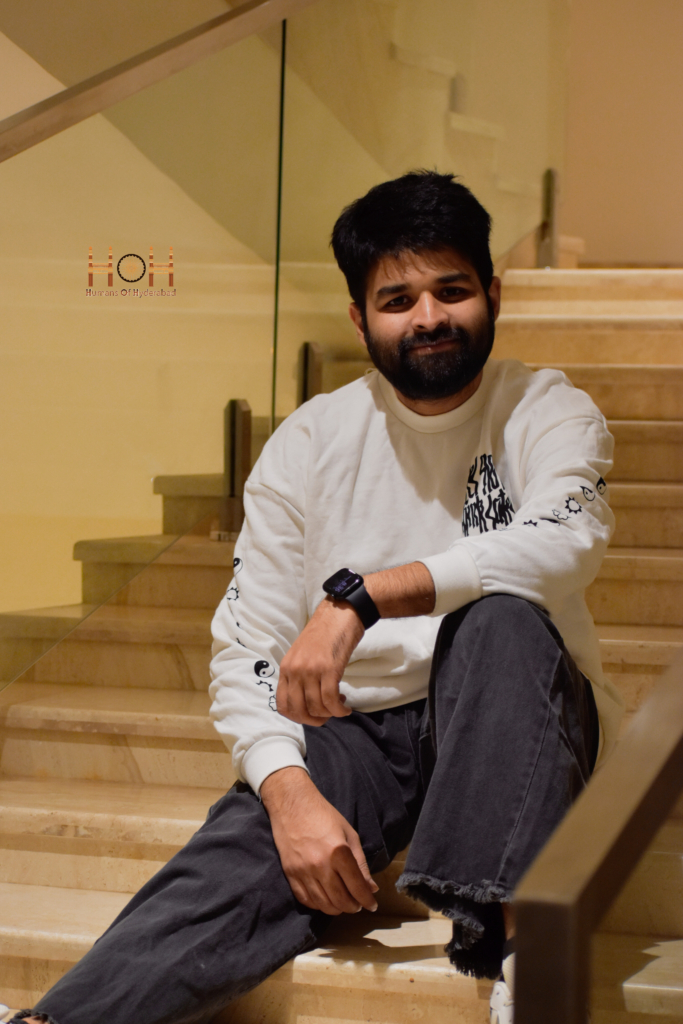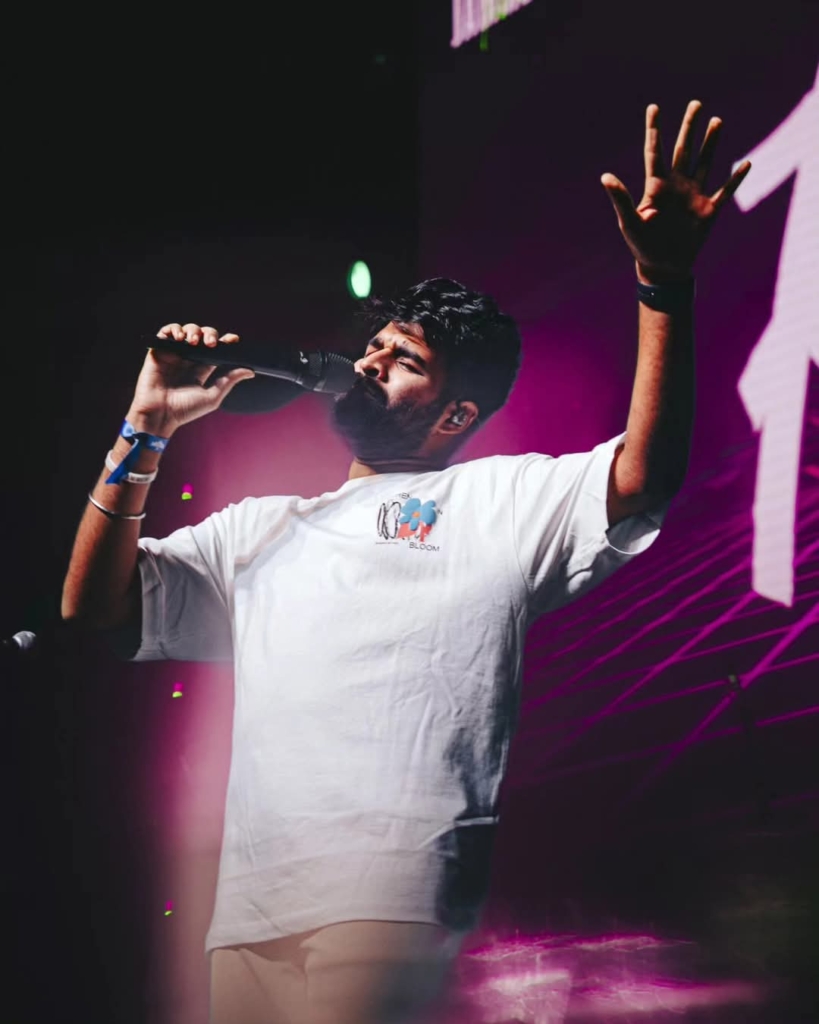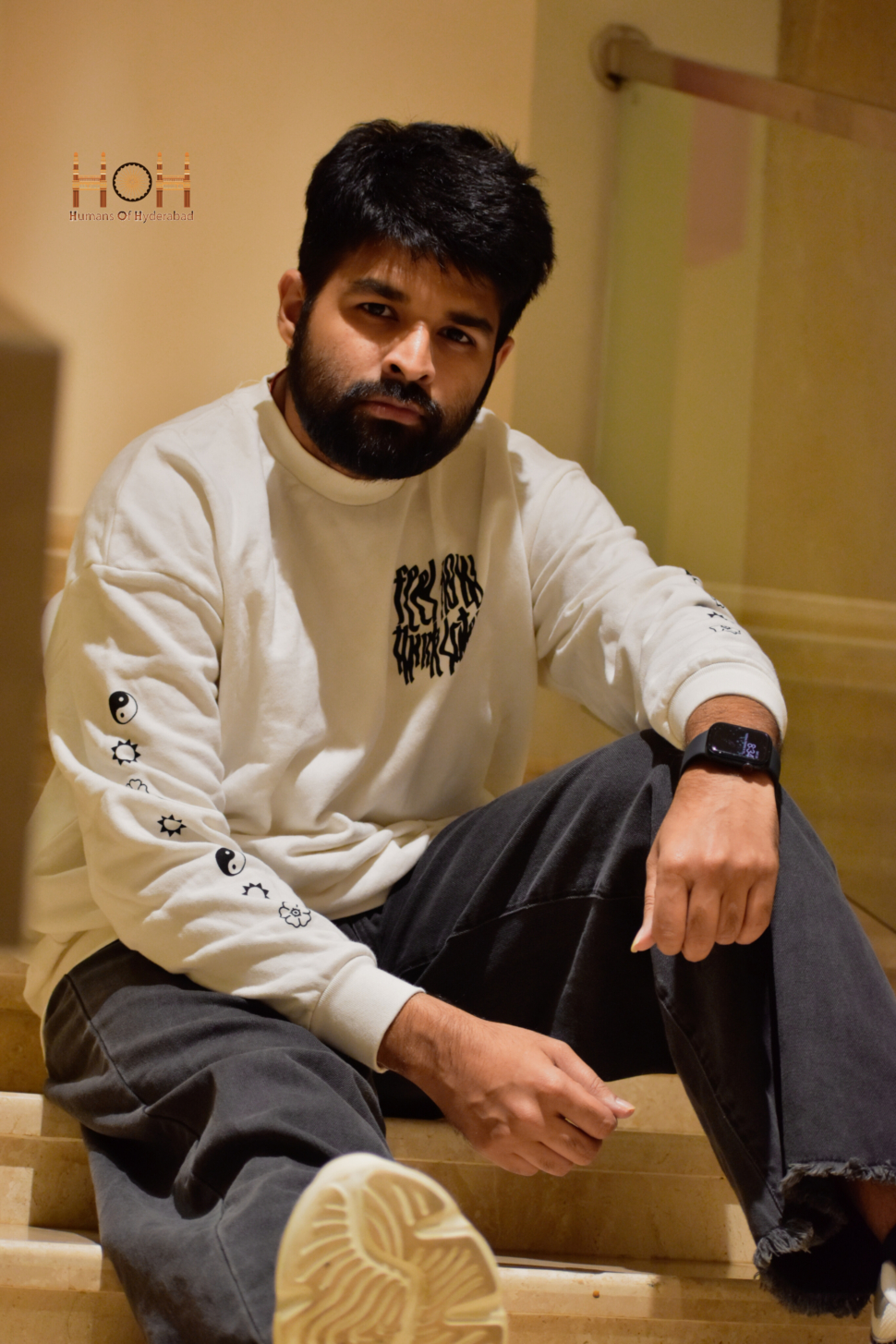“I didn’t start singing because I wanted to. It began with my brother. He was preparing for a singing competition, and while my parents were helping him out, my mom noticed I looked a bit left out. So she casually involved me too. That small moment changed everything. A few days later, my primary school teachers told her I had a good voice. That was the first time anyone had said that about me, and my parents took it seriously. I was seven or eight when they enrolled me in music classes.
I grew up in Hyderabad, where my dad—who started as a settlement employee and later became a principal—was posted for most of his career. Naturally, all my schooling happened there. Music wasn’t even on my radar until that moment.
We weren’t really allowed to listen to movie songs at home. Instead, I grew up hearing the voices of Bhimsen Joshi and M.S. Subbulakshmi. That shaped the foundation of my music. But my dad was a huge SPB fan, and thanks to him, I started recording SPB’s songs on cassette tapes. I had no idea about the movies back then—I just knew I loved those songs.
My first real exposure to movie music came when I participated in the reality show Super Singer. I was 12. I’ll never forget performing in front of 30,000 people during the finals in Tirupati. It was nerve-racking, but that stage gave me a different kind of confidence.
I’ve been learning Carnatic music for years, but the journey hasn’t been linear. Because of my dad’s transfers and my own schedule with competitions, I had to change gurus often. Each time, I restarted from the basics. It may have slowed things down, but it also made my fundamentals strong. My first guru, Katyayani Madam, gave me a solid base. Later, N.C. Parthasaradhi Sir introduced me to advanced techniques, and Ramachari Sir helped me understand what it means to hold the stage during a live performance.
During my engineering days at CBIT, I co-founded Jammers with my senior Naren, our keyboard player. Our drummer Shashank joined us from another college. We didn’t have big plans when we started. It was just about performing and enjoying ourselves during college.
Around that time, I also made a few casual videos with my friends Eknath and Teja, and some of them went viral.

When we started performing at clubs, Telugu music hadn’t really made its way into those spaces. Audiences mostly wanted Hindi songs. But bands like Capriccio had already begun changing that, and we were lucky to ride that wave. Slowly, Telugu music found its place. This May marks seven years of Jammers. What started casually has now become a full-time focus.
Eventually, I started exploring independent music more seriously. At first, I was hesitant to take up solo work—I didn’t want it to seem like I was moving away from the band. But I realised that people connect with the music itself. Whether it’s from a band or solo, what matters is honesty. Now I’m working on building a playlist of my own—original songs that reflect my voice and story.

If there’s one thing this journey has taught me, it’s patience. Success doesn’t come with a formula. Sometimes, luck plays a part. We started getting more shows because another band wasn’t performing much at the time, and that helped us grow. But you can’t control those things. What you can control is how often you show up—and how true you are to your music.
My advice to anyone starting out, don’t copy someone else’s path. Every artist’s voice and journey is unique. Your story is enough. Build on that. That’s how you’ll create something meaningful not just for others, but for yourself too.”
- Krishna Tejasvi, Singer
